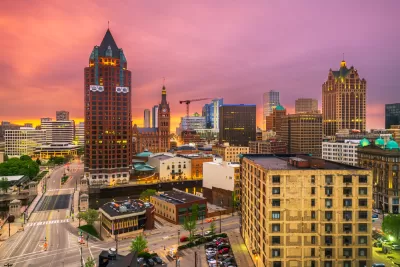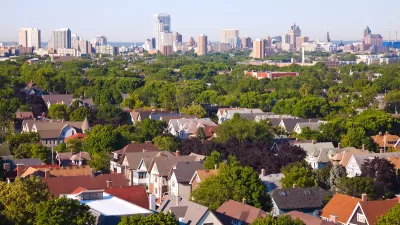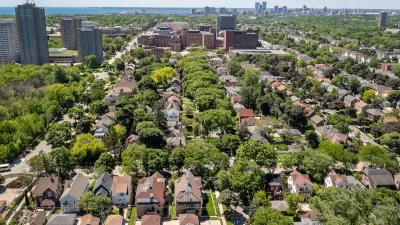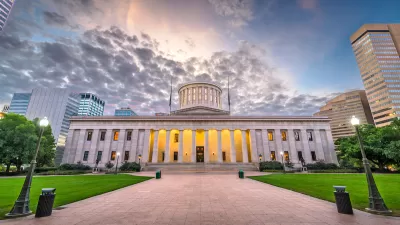The city is looking for ways to boost housing production, anticipating a growing population.

According to an article by Tom Daykin in the Milwaukee Journal Sentinel, Milwaukee officials are considering changing the city’s zoning code to encourage more housing production in commercial areas. “Those revisions, which need approval from the Common Council and Mayor Cavalier Johnson, would be a first step towards Johnson’s vision of eventually increasing Milwaukee’s population to 1 million.”
Proposals also include upzoning — increasing the allowable density — single-family neighborhoods to permit duplexes, townhouses, and other small multi-family housing types, and permitting accessory dwelling units (ADUs) more widely.
Another proposal would eliminate floor area ratio (FAR) in favor of height limits, setbacks, and other standards that limit the size of developments.
Industry experts say the city could also cut development costs by offering pre-approved plans and creating more tax incremental financing districts. “Those districts use property tax revenue from new developments to pay their costs.”
FULL STORY: Milwaukee wants 1 million people and more housing. Zoning code changes are a first step

Planetizen Federal Action Tracker
A weekly monitor of how Trump’s orders and actions are impacting planners and planning in America.

Maui's Vacation Rental Debate Turns Ugly
Verbal attacks, misinformation campaigns and fistfights plague a high-stakes debate to convert thousands of vacation rentals into long-term housing.

Restaurant Patios Were a Pandemic Win — Why Were They so Hard to Keep?
Social distancing requirements and changes in travel patterns prompted cities to pilot new uses for street and sidewalk space. Then it got complicated.

In California Battle of Housing vs. Environment, Housing Just Won
A new state law significantly limits the power of CEQA, an environmental review law that served as a powerful tool for blocking new development.

Boulder Eliminates Parking Minimums Citywide
Officials estimate the cost of building a single underground parking space at up to $100,000.

Orange County, Florida Adopts Largest US “Sprawl Repair” Code
The ‘Orange Code’ seeks to rectify decades of sprawl-inducing, car-oriented development.
Urban Design for Planners 1: Software Tools
This six-course series explores essential urban design concepts using open source software and equips planners with the tools they need to participate fully in the urban design process.
Planning for Universal Design
Learn the tools for implementing Universal Design in planning regulations.
Heyer Gruel & Associates PA
JM Goldson LLC
Custer County Colorado
City of Camden Redevelopment Agency
City of Astoria
Transportation Research & Education Center (TREC) at Portland State University
Jefferson Parish Government
Camden Redevelopment Agency
City of Claremont





























